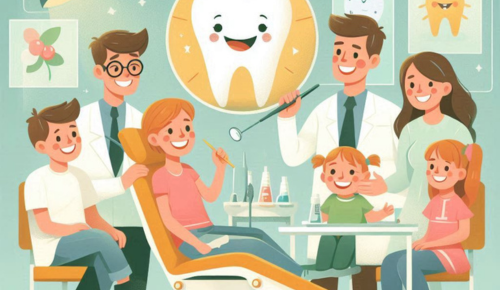Family dentistry is key to keeping your smile healthy for life. You deserve care that grows with you, building confidence in every grin. With regular cleanings and prevention Little Elm, you actively protect your teeth. Start by visiting your dentist twice a year. These visits help catch early signs of trouble. Avoid painful procedures by taking action now. You’ll want to involve your entire family in these habits. Teaching children about dental care sets them up for success. Turn brushing and flossing into daily routines. Good oral health is a shared journey, building trust between you and your loved ones. In family dentistry, each member has unique needs, but everyone benefits from the same great care. Watch your family’s smiles bloom with gentle, personalized treatment. Remember, the best way to fight dental problems is to stop them before they start. Stay committed and promote lifelong healthy smiles together.
The Role of Family Dentistry in Preventive Care
Preventive care is the foundation of family dentistry. Regular check-ups include cleanings, X-rays, and fluoride treatments. These efforts prevent cavities and gum disease. Your dentist can also detect issues like misaligned teeth early. For detailed information, visit the Centers for Disease Control and Prevention. They offer guidelines on oral health practices that benefit all ages.
Benefits of Early Dental Education for Children
Introducing children to the dentist early fosters a positive relationship with dental care. Experts suggest starting dental visits by age one. Early visits make children less anxious and more engaged. They learn that dental care is a normal part of life, not a fearful experience. Regular visits ensure that baby teeth develop correctly, laying a strong foundation for adult teeth.
Building Routine Dental Habits
Daily habits are vital for maintaining oral health. Encourage your family to brush twice daily and floss once. Use a timer to make sure everyone brushes for two minutes. Choose toothpaste with fluoride for the best protection. Drink water instead of sugary drinks to reduce the risk of cavities. Healthy routines at home complement professional care, extending the life of your teeth.
Comparing Family Dentistry to General Dentistry
| Aspect | Family Dentistry | General Dentistry |
| Patient Age | All ages | Adults primarily |
| Services Offered | Preventive, restorative, educational | Mostly restorative |
| Focus | Long-term oral health | Short-term treatments |
Choosing a Family Dentist
When choosing a family dentist, consider their experience with patients of all ages. Look for a welcoming office environment. A good dentist listens and communicates effectively. They explain procedures clearly and answer questions patiently. You can check recommendations from friends or read online reviews. Also, check if they follow the American Dental Association’s guidelines for safe, effective care.
The Long-term Impact of Family Dentistry
Consistent family dental care reduces the need for future treatments. Preventive care keeps teeth healthy, saving time and money. You invest in your family’s health, ensuring they enjoy strong, healthy teeth into adulthood. Family dentistry supports overall well-being, improving quality of life. A healthy mouth enhances communication, eating, and self-esteem, impacting everyday life positively.
Conclusion
Family dentistry is a proactive choice for lifelong oral health. It provides comprehensive care, focusing on prevention and education. Involve your family in routine dental visits and daily care habits. Choose a dentist who supports your family’s needs at every stage. Commit to healthy routines to ensure your smiles remain bright for years. Embrace family dentistry as a vital partner in your journey to lifelong oral health.

